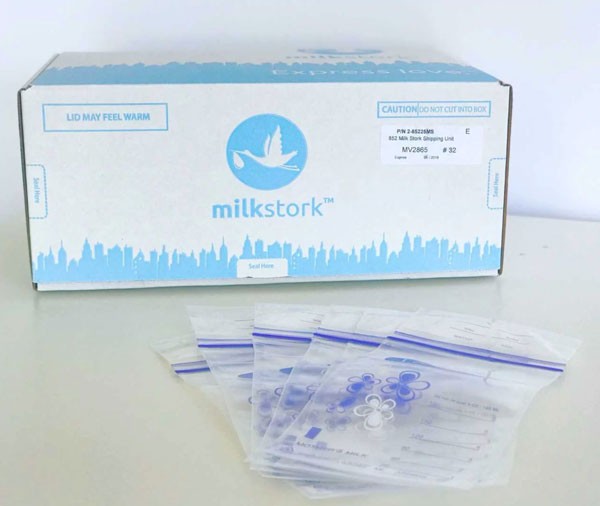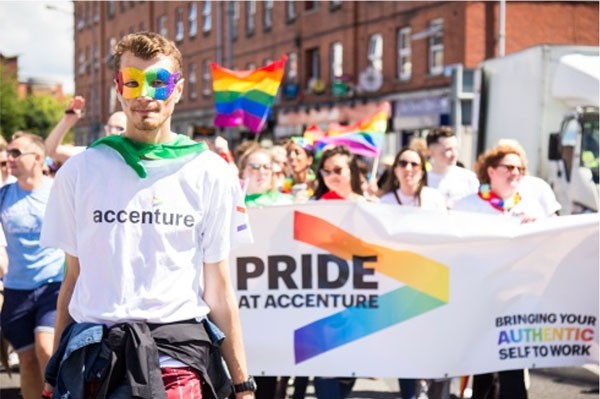5 Unexpected Job Perks That Make a Meaningful Impact on Employees' Lives
From free food to unlimited vacation time and even customized portraits, companies have many perks to keep employees happy and give themselves a competitive edge.
But recently, more and more companies have started taken their perks in a more personal direction, offering benefits that will have a long-lasting impact on employees’ lives and wellbeing. This includes investing more in employees' family life, which coincides with the millennial generation coming of parenting age.
"More and more companies are coming to terms with the fact that the majority of people in the workforce are going to become parents at some point," says Anne Weisberg, Senior Vice President for strategy at Families and Work Institute. “Supporting them throughout that transition, and beyond, lets companies keep valuable talent and helps employees do their best work.”
Beyond family-focused perks, companies are also starting to offer more perks specifically for transgender employees, who have needs that haven’t been traditional included in benefits packages.
Many of these benefits also contribute toward a culture of belonging and inclusion, helping attract diverse employees from many walks of life. Here are five examples:
1. Johnson & Johnson, Twitter, and others offer chilled breast milk shipping
In the US, companies are required to provide a space for mothers to pump breast milk. But with business travel, this gets more complicated. Breast milk is highly perishable, so it’s not possible to leave a supply in the fridge for long. And when a woman takes a break from pumping (which is painful), her body reacts by producing less milk later—so a simple meeting can actually impact her ability to nurse.
To combat this problem, companies like Twitter, Accenture, Johnson & Johnson, and Unilever have begun offering breast milk delivery for traveling moms. These services ensure that her milk arrives fresh and cold, using a cooler and overnight delivery.
Offering breast milk shipping is one way these copmanies show they truly support female employees and care about nurturing a healthy work-life balance. And for some companies, this service can also be a nice (and well-priced) alternative to extended maternity leave.
2. Netflix offers one year’s paid parental leave for both birth and adoption
Speaking of extended parental leave, one company that goes above and beyond is Netflix. The streaming service offers new moms and dads one whole year of paid leave after the arrival of a child—including after adoption. That’s 52 weeks that parents can spend with their bundle of joy—almost three times longer than the average among big tech companies, which is 18 weeks.
Netflix isn’t the only company showing its support for new parents. Pinterest offers three months’ paid parental leave, then helps parents transition back into normal hours with a month of part-time work at full pay.
Extended parental leave helps new parents get the rest and recuperation they need to do their best work when they return. However, these benefits can backfire if employees don’t feel like their job is secure enough to take the time off they deserve. So if you do extend parental leave, make sure it’s backed up with leadership support and understanding.
3. Accenture covers the costs of gender reassignment for transgender employees
Benefits and perks like vacation time and parental leave can help employees recharge their batteries and bring their best selves to work. But feeling comfortable bringing their whole self to work in the first place can be a huge challenge for LGBT+ employees, almost half of whom remain closeted at work.
For transgender professionals in particular, the process of transitioning to their true gender identity presents many challenges—not least the financial cost of gender reassignment surgery and hormone replacement therapy. But some companies are striving to make their health benefits more inclusive for all.
As part of its commitment to LGBT+ inclusivity, Accenture offers comprehensive health benefits to help transgender employees feel welcome and supported. This includes coverage for things like hormone therapy, transgender-specific surgeries, and mental health counselling.
Comprehensive health benefits help foster a culture of belonging where everyone is able to bring their whole selves to work. Transition-related care can support both the physical and mental health of transgender professionals, and is a huge differentiator when it comes to attracting top talent.
4. American Express and Wendy’s help cover the costs of adopting a child
For LGBT+ couples, partners who can’t have biological children, and many others who want to give a child a loving home, adoption is a life-changing option. It’s also incredibly expensive—costing upwards of $30,000 in the US.
To make it easier for employees to adopt, some companies offer benefits packages that help cover much of the cost. In 2017, American Express topped the list of the 100 Best Adoption-Friendly Workplaces, according to the Dave Thomas Foundation for Adoption (DTFA). The company’s health plan covers up to $35,000 of adoption costs, and adoptive parents can take up to 20 weeks of paid parental leave.
One big supporter of the DTFA is Wendy’s, which has offered generous adoption benefits to its employees for more than 25 years. The company also organizes an annual Frosty 5K Run to support adoption efforts throughout Ohio.
Offering adoption benefits helps employees build families—which can make the workplace feel more like a family, too.
5. Gusto offers inclusive and flexible fertility benefits to all employees
Fertility benefits like IVF treatment and egg freezing can make a meaningful difference for employees in so many ways. From helping couples struggling to get pregnant to letting professionals have more options for when and how they conceive, fertility benefits support the reproductive health of employees and empower them to make the choices that are right for them.
When payroll management company Gusto announced that it was extending its fertility benefits program in 2016 to make it more inclusive, the reaction from employees was truly heartwarming.
“There were actually a few employees who cried tears of happiness and pride that we were extending this to everyone,” Katie Evans-Reber, an HR professional at Gusto, told Forbes. “Most states don’t require that carriers offer fertility benefits to hetrosexual couples, let alone gay couples.”
Gusto was the first company in California to offer employees fertility benefits without requiring an infertility diagnosis. This made the plan friendly for LGBT+ couples ready to start a family.
To the company’s surprise, this more inclusive policy also made great financial sense.
“The ironic thing is, increasing access to fertility benefits doesn’t only help a larger group of people, it can also be cheaper than a plan that’s more restrictive,” Katie writes in a post on LinkedIn.
If your company already offers fertility benefits, it’s worth exploring whether your plan can be more inclusive. This can make such a huge impact in the lives of employees, and it might actually save money in the long-term.
Swag and ping-pong are nice—but making a meaningful difference leaves a lasting impression
A company-branded t-shirt is nice, and everyone loves unlimited vacation time. But by offering benefits that are practical but incredibly helpful, your company can make a real and meaningful difference in employees’ lives.
This is not only a great way to build loyalty, increase retention, and boost morale, but also aid your recruitment efforts. Offering inclusive and meaningful benefits shows candidates that your company cares and wants to support them both at work and at home.
*Photo by London Scout on Unsplash
To receive blog posts like this one straight in your inbox, subscribe to the blog newsletter.
Topics: Company culture Diversity
Related articles







